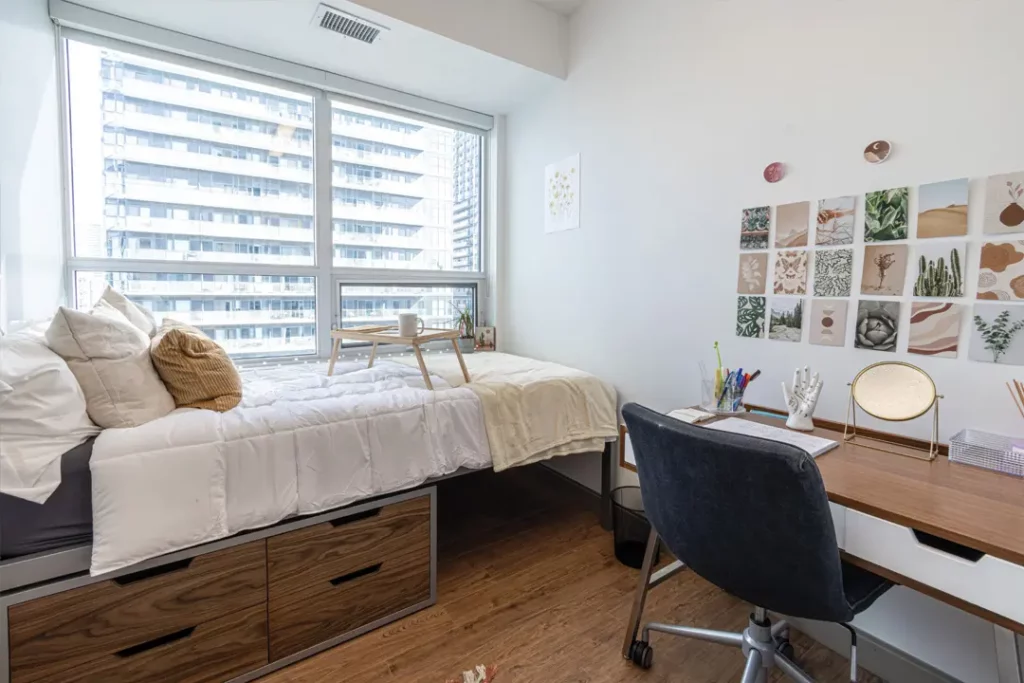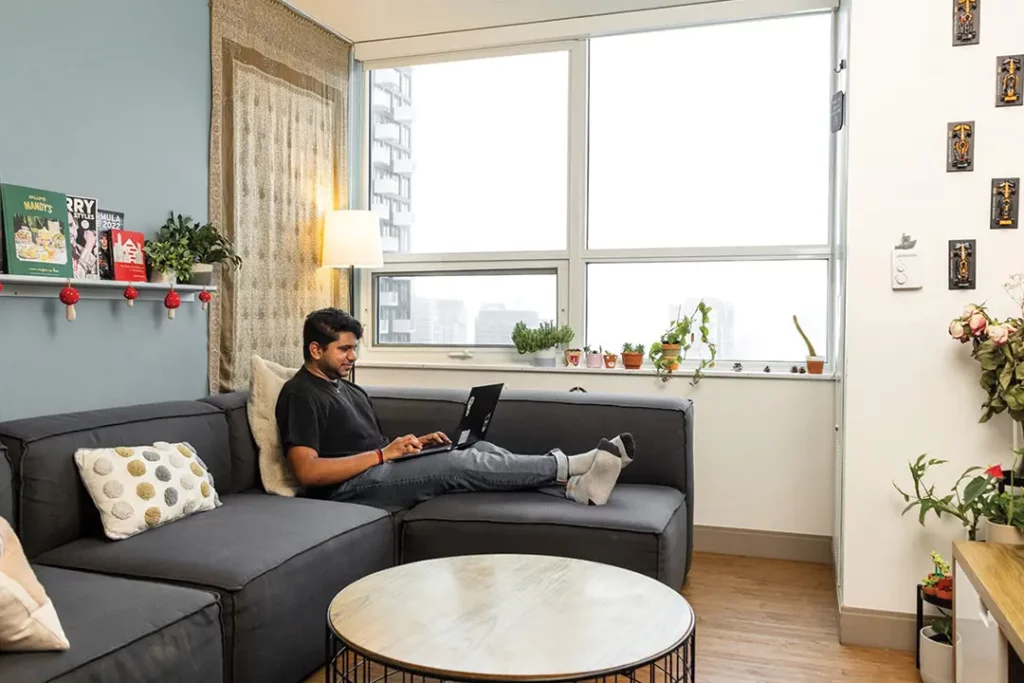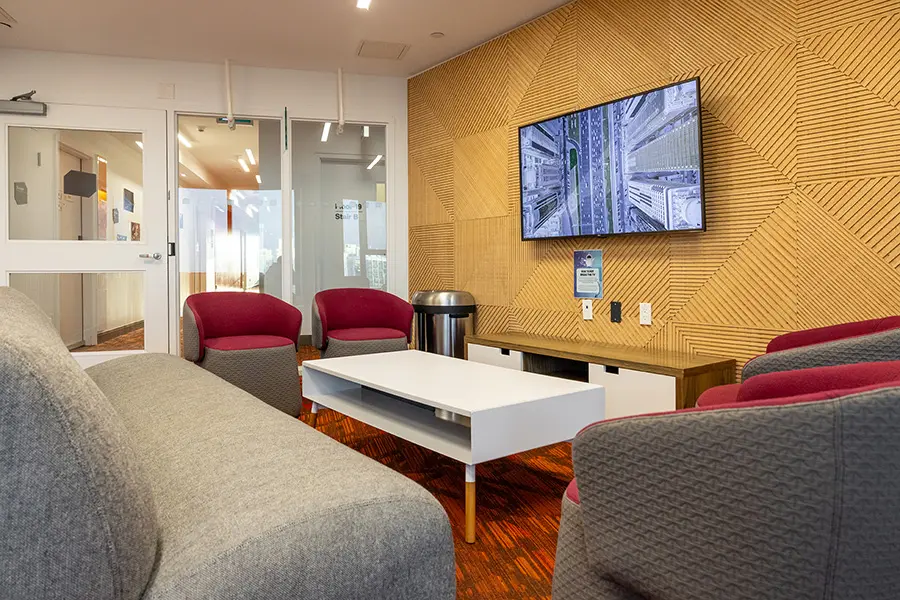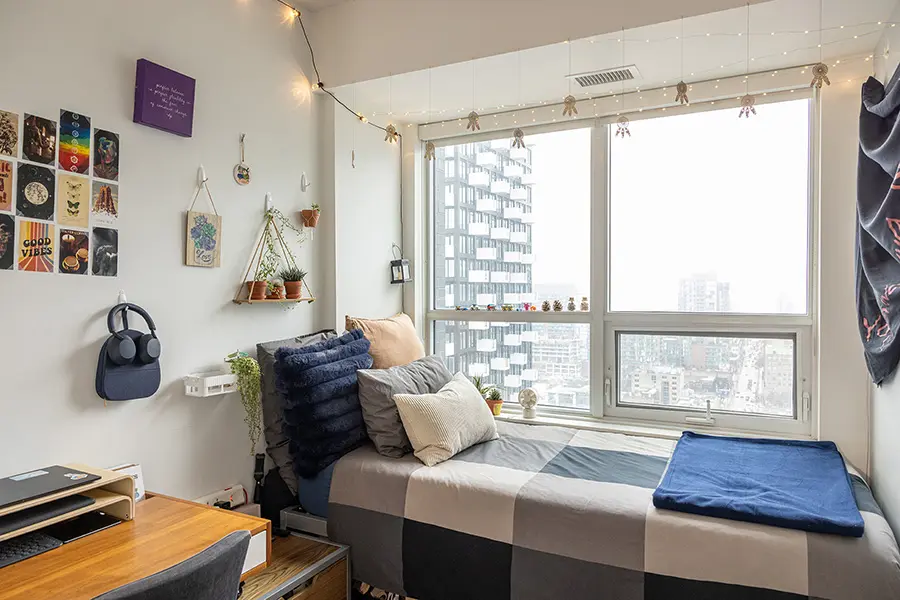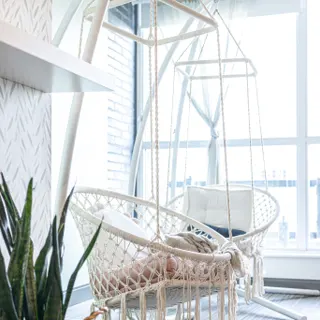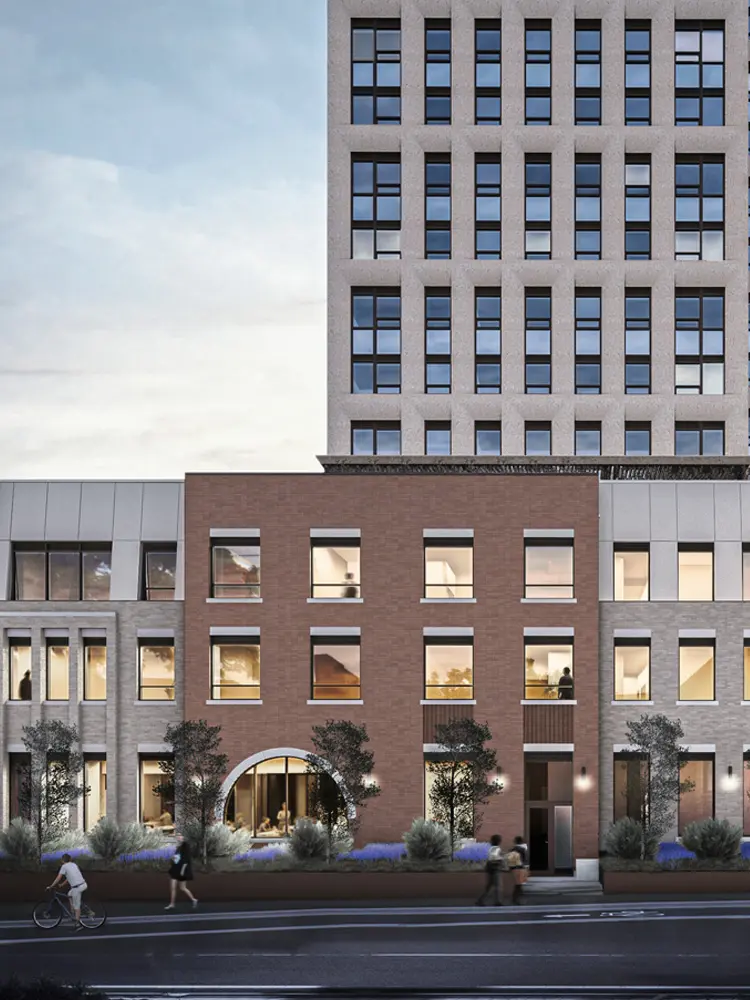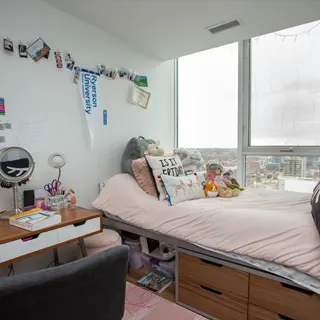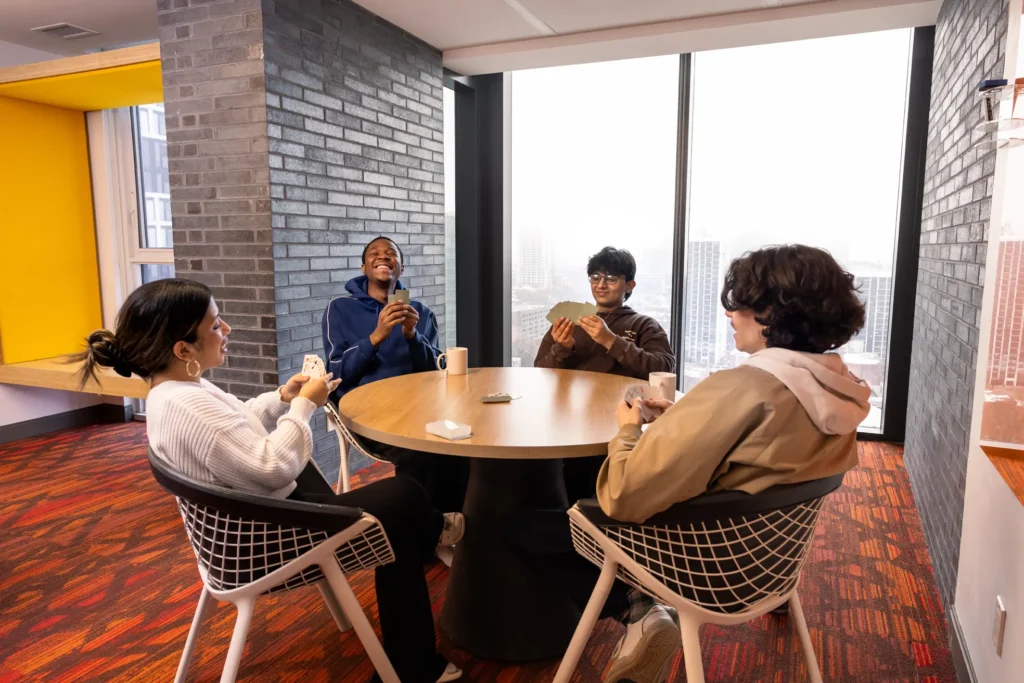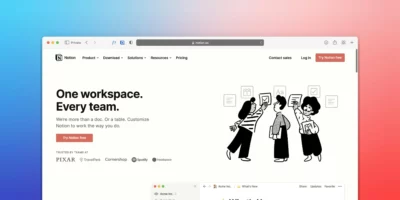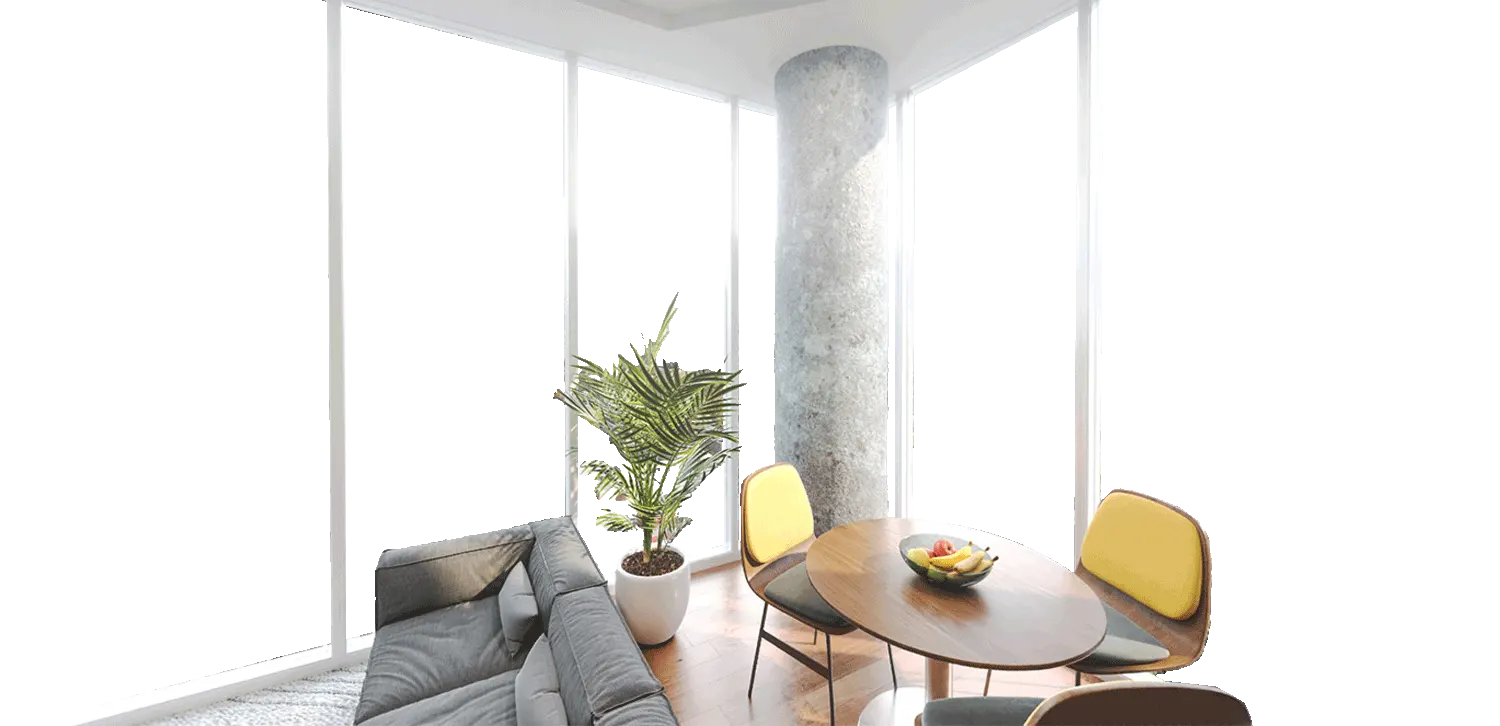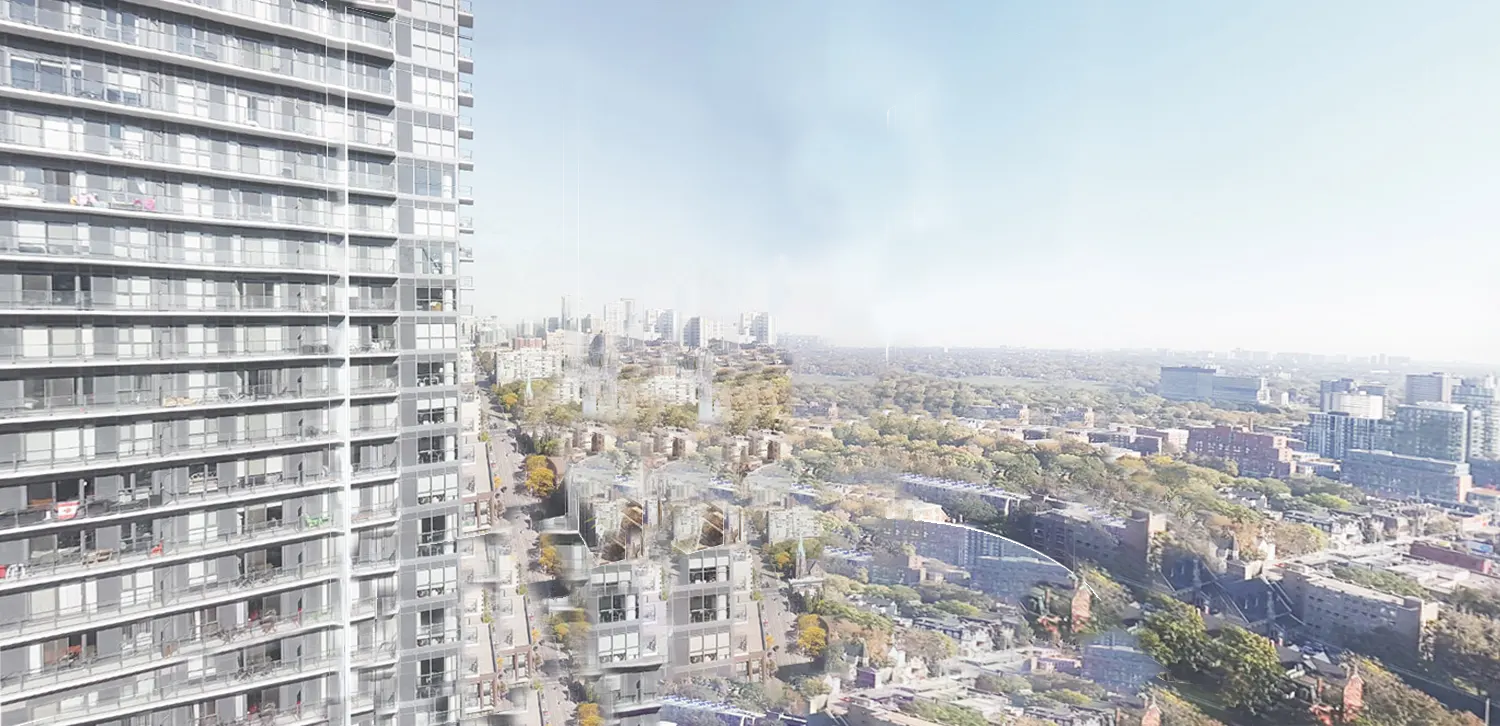
All About the Different Types of Student Housing
Wondering what the right type of student housing is for you? You’re not alone! Whether you’re starting your first year or looking to change your living situation, choosing where to live as a student is a big decision. From on-campus dorms to off-campus residences and private apartments, each option offers a different experience. Here’s a comparison of the key factors to consider when deciding what’s right for you.
Jump to a section:
Types of Student Housing
Cost
Independence
Social Life
Location
Support and Services
Types of Student Housing
There’s no one-size-fits-all when it comes to student living. Your ideal setup depends on how you like to live, study, socialize — and yes, how much responsibility you want to take on. Before diving into the details, let’s break down the most common types of student housing:
On-Campus Residence
Run by your college or university, on-campus residences are a popular pick for first-year students. They’re usually just steps away from your classes, with built-in supports like residence advisors, meal plans, and lots of opportunities to meet people. It’s a great option if you’re new to the city or want that classic “dorm life” experience — just know that spots can be limited, and some rules may be stricter than other living options.
Off-Campus Student Residence
Think all the perks of dorm life, with a little more freedom. Off-campus residences are privately operated but made just for students — with study spaces, gym access, community events, and more. You usually get your own room, flexible lease options, and a building full of people going through the same stuff as you. Many are located close to campus, so you still get that connected feel without being tied to school property.
Private Apartment or Condo
This one’s all about independence. Renting your own place — solo or with roommates — means you get to call the shots. Want to host a movie night with your own projector and snacks that don’t come from a vending machine? Go for it. Just remember — you’ll also be setting up your own Wi-Fi and troubleshooting things like internet outages and utility bills. It’s a great choice if you’re ready for more space and privacy, but it does come with more responsibility (and possibly more bills).
Now that you understand the options, let’s compare each below:
Cost Considerations
When thinking about housing, it’s important to look beyond the rent price and consider what’s included — and what you’ll need to pay for separately.
On-campus housing can feel expensive, but it usually includes utilities, Wi-Fi, and meal plans all rolled into one. This all-in-one setup means fewer surprise bills, which can make budgeting easier — especially if this is your first time living away from home.
Off-campus student residences vary in price depending on the building and amenities but often bundle things like furnished rooms, utilities, high-speed Wi-Fi, security, and even cleaning services. It’s a balance between independence and convenience, with many extra perks included.
Private rentals might have a lower monthly rent, but costs like hydro, internet, tenant insurance, and transit add up quickly. If the place isn’t furnished, you’ll need to buy your own furniture, and either way, you’ll need your own dishes and cookware. This option gives you the most freedom but also requires careful budgeting and planning.
Always compare total monthly costs, not just rent. You should also consider the cost of internet, furniture, transit, and utilities.
Lifestyle and Independence
Your housing choice can shape more than just where you sleep — it affects how you live, study, and connect with others. Here’s how the different options stack up:
On-campus residences are perfect if you thrive with a bit of structure and want to be at the heart of campus life. With easy access to classes, libraries, and student services, plus the support of residence advisors and community events, it’s an ideal setup if you want convenience and a built-in support network.
Off-campus student residences offer a great middle ground. You get more independence than a dorm but still enjoy a community vibe. Many buildings host social events, provide shared study spaces, and include amenities like gyms or lounges — all designed with students in mind. It’s a place where you can live on your own terms but never feel isolated.
Private apartments or condos are for those who value privacy, independence, and want to call the shots. Whether you’re living solo or sharing with friends, this option gives you full control over your space and lifestyle. Well-suited for those who prefer to study in total solitude, want the freedom to host friends on their own terms, or just like having a space to themselves. That said, managing your own space means taking on more responsibility — from bills to maintenance.
Community and Social Life
Feeling connected can make all the difference during your student years, and where you live plays a big role in that.
Living on-campus or in a student residence often makes it easier to meet new people and dive into campus life. From common lounges and shared kitchens to organized events and group activities, these spaces are designed to help you build friendships and find your people, whether you’re into study groups, movie nights, or weekend socials.
Off-campus student residences often take community a step further. Many offer shared spaces like game rooms, rooftop patios, and fitness centres, plus regular social events that bring residents together. These places strike a nice balance between privacy and connection, so you can enjoy your own space while still feeling part of a vibrant community.
Private rentals can sometimes feel quieter or more isolated, especially if you’re living alone or in a neighbourhood without many students. But if you’re sharing with friends or in a student-friendly area, your social life can thrive just as much. It might just take a bit more effort to get involved outside your front door — think clubs, sports, or local hangouts.
Convenience and Location
Where you live can make your daily routine smoother or add some extra hurdles. Here’s what to expect from each housing option:
On-campus housing is unbeatable when it comes to being close to everything academic. Just roll out of bed and you’re steps away from your lectures, libraries, and campus hotspots. It’s the ultimate in convenience, especially during those busy weeks of exams and assignments.
Off-campus student residences usually strike a nice balance. They’re often situated near public transit routes and within easy walking or biking distance to campus. That means less time commuting and more time for the things that matter, like hanging out with friends, studying, or just relaxing.
Private apartments or condos might be a bit farther out, especially if you’re looking for a larger space or something more affordable. That could mean longer commutes or relying more on transit. It’s worth weighing the trade-offs between location, cost, and lifestyle when choosing your spot.
Support and Services
Having reliable support close by can make student life a lot less stressful, especially when things don’t go as planned.
On-campus housing usually includes residence advisors who are there to help with everything from roommate issues to mental health resources. Plus, there’s often emergency support on-site, giving you peace of mind around the clock.
Off-campus student residences tend to offer 24/7 front desk staff, so there’s always someone around if you need help or have questions. Many also provide maintenance services to quickly fix issues, and some even include in-suite cleaning — a nice bonus when juggling classes and social life.
Private rentals come with the most independence, but that means you’ll need to handle any problems directly with your landlord or property manager. Whether it’s a leaky faucet or a noisy neighbour, you’re the one responsible for sorting it out, so it helps to know your rights and keep good communication.
How to Choose the Best Option for You
At the end of the day, the best housing choice is one that fits your unique needs and helps you thrive both academically and personally. Remember to weigh what matters most to you: budget, community, independence, or convenience. Don’t rush the decision; take advantage of tours, ask current residents about their experiences, and trust your instincts. Finding the right home away from home can make your student years that much more rewarding.

